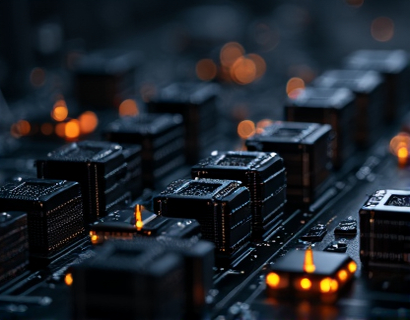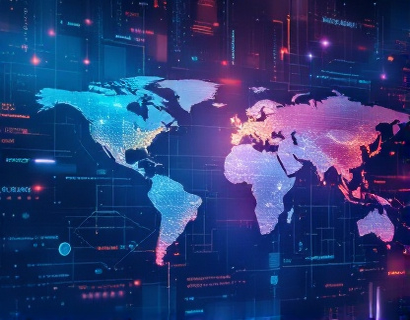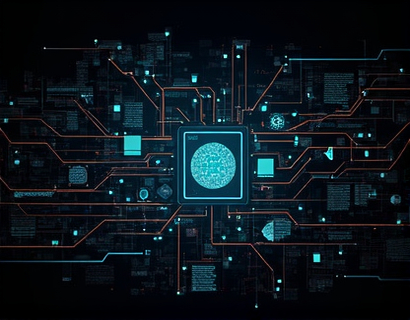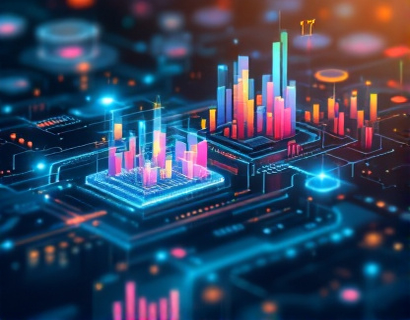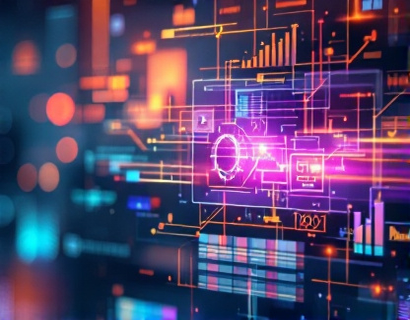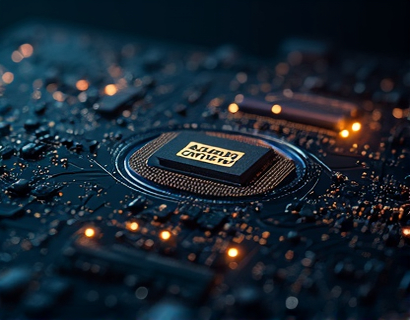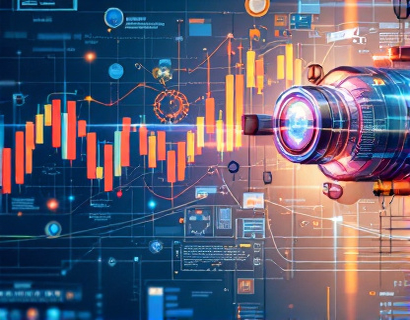Crypto and AI Synergy: Transforming Digital Experiences with Next-Gen Tech Solutions
The intersection of cryptocurrency and artificial intelligence (AI) is giving rise to a new era of digital innovation, where the synergy between these two cutting-edge technologies is redefining user experiences and creating advanced applications that were once thought impossible. This article delves into the transformative power of this convergence, exploring how it is reshaping the digital landscape and offering unprecedented opportunities for tech enthusiasts, businesses, and early adopters alike.
The integration of cryptocurrency and AI is not just a technological curiosity but a practical solution that enhances efficiency, security, and user engagement. Cryptocurrency, with its decentralized and transparent nature, provides a robust foundation for AI applications that require secure, trustless, and scalable infrastructure. Meanwhile, AI's ability to analyze vast amounts of data, learn from patterns, and make intelligent decisions is perfectly complemented by the computational power and unique properties of blockchain technology.
Enhanced Security and Trust
One of the most significant benefits of combining crypto and AI is the enhanced security and trust it brings to digital interactions. AI algorithms can detect and mitigate fraudulent activities, anomalies, and cyber threats in real-time, leveraging blockchain's immutable ledger to ensure that transactions are secure and verifiable. This synergy is particularly crucial in industries such as finance, healthcare, and supply chain management, where data integrity and security are paramount.
For instance, AI-driven security systems can monitor blockchain networks for suspicious patterns, automatically triggering alerts and countermeasures to prevent potential breaches. This proactive approach not only protects sensitive information but also builds user confidence in digital platforms, fostering greater adoption and trust in crypto-based services.
Optimized Data Processing and Analysis
AI's strength lies in its ability to process and analyze vast datasets, extracting valuable insights that can drive informed decision-making. When combined with the distributed computing power of blockchain, AI can operate at unprecedented scales and speeds. This synergy enables real-time data processing, predictive analytics, and personalized experiences that were previously unachievable.
In the context of crypto, AI can optimize trading strategies, predict market trends, and manage risk more effectively. Smart contracts, powered by AI, can automate complex transactions and agreements, reducing the need for intermediaries and lowering costs. This not only streamlines operations but also enhances the overall efficiency of crypto ecosystems.
Personalized User Experiences
The convergence of crypto and AI is revolutionizing how digital services interact with users, offering highly personalized and tailored experiences. AI algorithms can analyze user behavior, preferences, and historical data to create customized recommendations, content, and services. When integrated with cryptocurrency, these experiences can be monetized in innovative ways, such as through tokenized rewards and incentives.
For example, a digital content platform could use AI to curate personalized news feeds or entertainment recommendations, with users receiving tokens as rewards for engaging with the content. These tokens can then be used to access premium features or traded on crypto exchanges, creating a seamless and rewarding user experience.
Decentralized Applications and Ecosystems
The synergy between crypto and AI is giving birth to decentralized applications (dApps) and ecosystems that are more resilient, transparent, and user-centric. dApps leverage blockchain's decentralized architecture and AI's intelligent capabilities to create self-sustaining platforms that operate without central authority.
These dApps can range from decentralized finance (DeFi) platforms that offer lending, borrowing, and trading services, to decentralized social networks that prioritize user privacy and data ownership. AI enhances these platforms by providing intelligent matching, fraud detection, and user experience optimization, making them more robust and appealing to a broader audience.
Supply Chain and Logistics
In the realm of supply chain and logistics, the combination of crypto and AI is transforming how goods are tracked, verified, and delivered. Blockchain provides a transparent and immutable record of transactions, while AI optimizes the entire supply chain process through predictive maintenance, demand forecasting, and route optimization.
For instance, AI can analyze real-time data from IoT devices to predict equipment failures, reducing downtime and maintenance costs. Smart contracts can automate payments and ensure compliance with contractual obligations, all recorded on a blockchain for transparency and traceability. This not only enhances efficiency but also builds trust among all stakeholders in the supply chain.
Healthcare and Medical Research
The healthcare sector is another area where the synergy between crypto and AI is making a significant impact. AI-driven analytics can process medical data to identify patterns, predict disease outbreaks, and personalize treatment plans. Blockchain ensures the secure and privacy-preserving sharing of medical records and research data, fostering collaboration and innovation.
Crypto tokens can be used to incentivize data contributors, researchers, and healthcare providers, creating a decentralized and equitable system. For example, patients can earn tokens for sharing their health data, which can be used by AI algorithms to improve medical research and treatment outcomes. This not only accelerates medical advancements but also empowers individuals by giving them control over their data.
Challenges and Considerations
While the potential of crypto and AI synergy is vast, there are several challenges and considerations that need to be addressed. Regulatory uncertainty remains a significant hurdle, as governments worldwide are still grappling with how to regulate these emerging technologies. Ensuring compliance while fostering innovation is a delicate balance that requires collaboration between stakeholders.
Another challenge is the technical complexity involved in integrating AI with blockchain systems. Developers need to possess a deep understanding of both technologies to create robust and scalable solutions. Additionally, the energy consumption associated with blockchain mining and AI computations raises environmental concerns that need to be addressed through sustainable practices and technologies.
Future Outlook
The future of crypto and AI synergy is bright, with ongoing advancements promising even more transformative applications. As technology evolves, we can expect to see more sophisticated AI models running on blockchain-based infrastructure, leading to even greater security, efficiency, and innovation.
The rise of quantum computing, for instance, could revolutionize both crypto and AI, enabling faster and more powerful computations. However, it also poses new challenges, such as the potential to break current cryptographic algorithms, necessitating the development of quantum-resistant cryptography.
In conclusion, the convergence of cryptocurrency and AI is not just a technological trend but a fundamental shift in how we approach digital innovation. By leveraging the strengths of both technologies, we can create more secure, efficient, and user-centric applications that transform various industries and enhance digital experiences. As this synergy continues to evolve, it will undoubtedly shape the future of technology and beyond.






